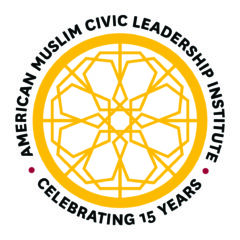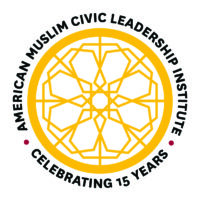What did it mean to you for AMCLI to be a “Muslim” leadership program?
Brie: AMCLI is an educational program in the context of a non-sectarian university. It is not a religious training program, but a leadership program that is rooted in a certain way of understanding Muslimness and Islam in this context. It’s a very delicate dance.
When we started AMCLI, there were certainly concerns about how religious we were. Were we religious enough? Were we religious in the right ways? Were we imposing religion on people? Were we making space for all the different ways for people to practice? Every year, we tried to recalibrate and adjust to find the right approach.
At the beginning, we didn’t have a lot of credibility to lean on, just a lot of goodwill. So we made adjustment after adjustment after adjustment. And then finally I think we started to settle into our skin. Which was, “This is who we are, and it’s not going to be for everybody, and everybody’s not always going to be comfortable. And we will try to make it as comfortable as it can be for you, but there’s consent in opting into any relationship.”
Nadia: Just building off of that, it was interesting that the process of settling into our skin was really important. Because at the beginning it was a big question about how do you engage a religious community while not having religious authority?
We did things like text studies. I’ll never forget that. Trying to facilitate a text study was probably one of my most nervous moments of teaching or facilitating ever! Usually the person who facilitates that conversation is a person with the most religious knowledge, the person who has a strong grasp of the Quran and recitation. And that definitely was not the role that I had in that group.
Over time, it became clear that we can engage a diverse religious community without having that religious authority. Because what we became really clear on is that our expertise was in holding space for a diverse religious community to have a healthy relationship and dialogue with itself.
Our goal wasn’t to be the most religious person in the room or have all the answers. Our goal was to make sure, as much as we possibly can, that everybody in that room feels safe to share their own experience, their own truth in a way that shows the diversity of American Muslims. And that leads to a healthy conversation about what is happening across the country, and what American Muslims need, and what the community wants to move forward.
I think we became experts in that: how to create that space and how to hold it; how to build the container and make sure that you could have people in the room from very secular to very religious. And that became something that we did have credibility and authority and knowledge in.
Brie: I think the question of how we handled religion was always such an evolving source of contention and difficulty, but then also sometimes real creativity. I actually think what we did really well wasn’t necessarily the process, like the thing that we decided on; it was telling people about the choices that we had to make.
I remember initially our schedule didn’t have prayer times on it. And then somebody was like, “Is this a secular program? Where’s the Muslim-ness?”
So then we added the prayer times, and somebody said, “This is so overbearing. We know when prayer times are, why would you add them?”
So we added the prayer times with “for those who are observing.” And then someone else was like, “How could you put that it’s for those who are observing? Shouldn’t everybody be observing?”
I can’t remember what we decided to do, but in future programs, we told them the story of each of the options. And for me, that was powerful because everybody thought that there was some politics behind the decision. Really the intention was to create an opportunity for people who want to pray to pray and for everyone to feel like AMCLI is a welcoming place for them. Rather than trying to solve it with the perfect process, we talked to people through it.
When we made a decision, it was because a decision had to be made, not necessarily because we’d had this overriding agenda with it. We were very clear about our intentions and the limitations of the choices we had to work with.
I really liked the conversation that we would have at the beginning of the program, where we were like, “Let’s talk about religion. Here’s how we handle religion. And it looks like this, and you might find that upsetting, and we don’t want you to find it upsetting. And so we will make modifications to have it be less upsetting, but anytime we make a choice, someone will interpret that choice in whatever ways. We can’t be responsible for it, but we will tell you what our intention is behind it.”
And, for the most part, that defused a lot of mostly minor conflicts for people. Give people some insight into your process, give them some insight into the limitations that you have and ask them to extend you some grace, and then offer to do the same for them.
Nadia: I think how we landed on faith reflections is another really good model of that. People wanted us to infuse the program with a sense of Muslim identity, faith and spirituality. We started with scholars presenting. We tried to get a range of scholars. But no matter who we brought, people in the group would say, “Why don’t you bring this person too?” Or they would be upset by the way one scholar spoke.
We realized quickly that that was not going to be an effective solution. If the goal was to infuse the group with spirituality, then we decided to imbue the space with the group’s own reflections. We asked the group to bring their own lived faith—the way they practiced their faith—into the group and share that as a way to bring faith into the space.
I really am happy with where that landed because it ended up reflecting the group and reflecting the American Muslim community’s perspective on how faith is coming into their lives.

